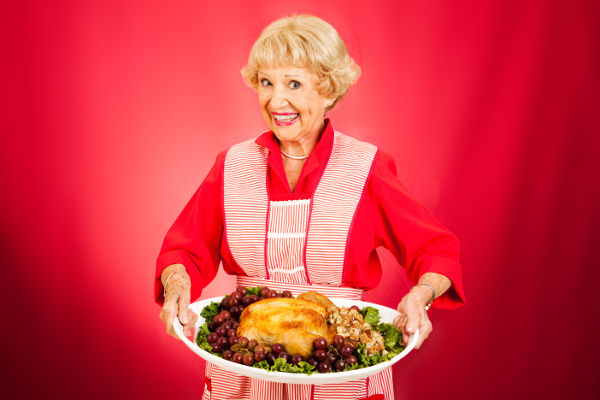Passive-Aggression
A Passive-Aggressive Thanksgiving
What’s really going on at the family table
Posted October 31, 2017

When a passive-aggressive family sits down to the Thanksgiving meal, they join hands and say grace. But grace is in short supply at this holiday table.
Mom is grateful that Aunt Sara lost her bid to host Thanksgiving this year, since Sara ruins every holiday with her disorganization.
Dad gives thanks that he’s not seated next to his son Tom, who doesn’t seem to be speaking to him this year, though he’s not sure why.
Aunt Sara is thankful for her reputation as a terrible cook. No one will complain that she brought store-bought mashed potatoes instead of making them from scratch.
Grandpa’s just glad that everyone thinks he’s too “confused” to pitch in and help with anything. He can sit back and watch the game in peace.
Tom is thankful that his wife Daniela can run interference between him and Dad. He’s angry that Dad didn’t offer to help with the down payment on their house. He’s still waiting for an explanation.
Daniela appreciates having arrived last so they could park in a spot that won’t be blocked. This way they can leave when they’re ready and not get stuck listening to Uncle Darrell talk about Afghanistan.
Grandma gives thanks that Aunt Sara is still married to Uncle Darrell. She’s pretty sure Sara is a lesbian, since no straight woman would bring store-bought mashed potatoes to a potluck.
Uncle Darrell feels deep gratitude for the loan he got from Dad earlier this year. He’s embarrassed that PTSD has kept him from working and doesn’t mind keeping the loan a secret between him and Dad.
Tom’s sister Dana is grateful for the anxiety medication she takes. It allows her to endure family holidays without snapping at Mom, whose perfectionism ruins every holiday.
Mom and Dad’s dog, Pogo, doesn’t understand the tension in the house today. But he's grateful for the delicious potatoes people are passing him under the table.
Learned Behavior
Passive aggression runs in families. It’s not a personality trait, but a communication style that’s learned through observation. The antidote to passive aggression is courage. And maybe a little humor.
It takes courage to speak up and say what you mean, feel, and want. Especially in an environment where speaking up isn’t common. Making a joke out of something serious might be a little passive-aggressive. But if it’s a step toward speaking your truth, it’s a step in the right direction.
Me? I’m grateful you read this post all the way to the bottom. Happy holidays!


